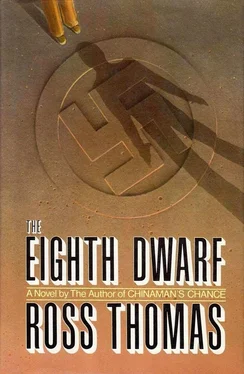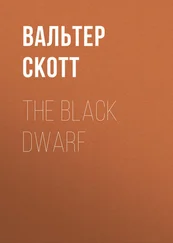“Well, there are clocks, I suppose.”
“How much are they paying for watches, Hans?” the red-bearded Sergeant asked.
“It varies. But it’s somewhere between five hundred and a thousand dollars.”
“But if all these old Russian boys’re gonna be paid all at once,” Sergeant Packer said, “then the price for watches is gonna go up, right?”
“The inexorable law of supply and demand, which I’ve been scoffing at for years,” Sergeant Sherrod said, “will again go into operation. Our problem is supply. Where are watches plentiful?”
“Switzerland,” Oppenheimer said.
“Ah, but how does one get into and out of Switzerland undetected with a suitcase full of watches?”
“It can be done.”
Sergeant Sherrod stared at Oppenheimer carefully. “Could you do it?”
“Yes.”
“For some reason,” Sergeant Sherrod said, “I thought that you might.”
Carrying $5,000 in U.S. currency taped to his stomach, Oppenheimer used the same routes and the same crossing into Switzerland near Singen that he had used during the war. Nothing was changed now, except that it was easier.
In Zurich, he bought one hundred wristwatches a few at a time from different dealers. Most of the watches had black faces with sweep second hands, and all of them had easily removable backs. The Russians liked to open their watches up and examine their insides. They also liked to count the jewels. A few dabs of fingernail polish would increase the number of jewels in each watch that Oppenheimer bought from seventeen to twenty-one.
Back in Berlin, the three men fed the black-faced watches slowly to the Russians. They became such highly prized items that the last five sold for $1,500 each. The two Americans’ total profit, less expenses, amounted to $97,500. They sent the money back to the States in the form of postal money orders, never more than $1,000 at a time. Less than a week after they sent the final $1,000, the Army woke up to what was going on and clamped down. But by then, Sergeant Packer had bought his 640-acre ranch, and Master-Sergeant Sherrod had bought his first 100 shares of stock in International Business Machines and was negotiating by mail for three beachfront lots in Malibu.
Kurt Oppenheimer’s share amounted to $10,000, which he took in the form of cigarettes. In Berlin in 1945 he discovered that he was a very rich man. He also discovered something else while occasionally answering Sergeant Sherrod’s Headquarters Company telephone. He discovered that he was usually mistaken for an American.
It was while pondering this information one evening in a café on the Kurfürstendamm that he spotted the Gauleiter from Bavaria. The Gauleiter’s name was Jaschke, and during the war he had ranked high on the death list of Oppenheimer’s long-destroyed organization. The Gauleiter had made it a point to cleanse his district of Jews. By 1943, not one was left. All 1,329 of them — men, women, and children — were either dead or in concentration camps. The Gauleiter, Oppenheimer remembered, had been given some sort of commendation.
Oppenheimer followed Jaschke from the café. On a dark street, he accosted the Gauleiter with “Your name is Jaschke.”
“No, it is not. You are mistaken. My name is Richter.”
As in the dream about Himmler, Oppenheimer slowly drew the Lüger from a pocket of his raincoat and aimed it as Jaschke. “Your name is Jaschke,” he repeated, wondering what would happen next.
“No, no, you are wrong. See, I have proof.” Jaschke reached for his inside coat pocket, and Kurt Oppenheimer squeezed the trigger of the Lüger. He was slightly surprised when the pistol fired, and even more so when most of the top of Jaschke’s head seemed to explode.
Oppenheimer turned and walked away. He had been wondering what to do with his newly acquired black-market wealth and now he knew. It was very much like having an avocation and the leisure to pursue it. He would again seek out those who needed killing and kill them. You are quite mad, you know, he was promptly informed by the old, familiar mocking self whom he had not heard from in several months.
“Yes, I know,” Kurt Oppenheimer replied, and after a few more steps realized that he had said it aloud.
An American Army deserter with whom Kurt Oppenheimer had once done a little business in Munich was the one who finally gave the authorities their first clue. It happened six weeks after Oppenheimer left Berlin. The deserter had sold Oppenheimer a Walther pistol — the same pistol, in fact, which later he would use to kill the man who sold identities, Karl-Heinz Damra.
The second in what was to be the long series of deaths had been that of an ex-Waffen SS lieutenant colonel, and for a time the Army investigators entertained the notion that the American deserter might have been the one who had shot him three times. The deserter finally convinced them that he hadn’t and in doing so gave them an extremely accurate description of the man to whom he had sold the Walther. The only thing misleading about his description was his claim that the man who had bought the pistol spoke English with a heavy German accent. It was an accent, of course, which Oppenheimer sometimes employed.
But everything else about the deserter’s description tallied almost exactly with the extensive dossiers that both Bureau IV and Bureau V of the SS Reichssicherheitshauptampf, or National Central Security Office, had once maintained on Kurt Oppenheimer. The pattern of operating was the same, as were the height, weight, and coloring. The only item missing from the SS files was a photograph. There was none.
The Americans shared their discovery with the Russians and the British. They also offered the information to the French, but the French that week were miffed about something and rejected the offer. The Russians and the British, however, were very much interested, and as the killings went on they became even more so.
Sitting now on the edge of his cot in the cellar of the ruined castle near Höchst and waiting for the water to boil for his tea, Kurt Oppenheimer tried to remember the faces of all the men he had killed. For some reason, the faces of those he had killed before the war ended were clearer than those he had killed afterward. These latter faces tended to blur and sometimes even took on the features of Sergeants Packer and Sherrod. He often thought of the two Americans, who had been shipped home months before, and wondered what they were doing. Packer he always pictured on a horse, dressed like a cowboy, and Sherrod, red beard bristling, was always lying near the surf on some warm beach.
He had no trouble remembering Karl-Heinz Damm’s face, however, because Damm he had known quite well. Damm, in fact, had been the only one he had really despised. The rest had been merely symbols that he had destroyed. He had decided that you didn’t need to hate a symbol in order to destroy it All you had to do was squeeze the trigger. It was really quite simple.
He rose and poured the boiling water into the teapot. Then he took the list that he had torn from Damm’s ledgerlike book and studied it. The first name on the list was in the American Zone, in Russelsheim, only 19 miles from Frankfurt. The second name on the list was in the British Zone, in Bonn — or was it Bad Godesberg? No matter. He would do the one at Russelsheim first. Today he would demote himself to lieutenant It would be the last time that the American officer uniforms would be of any use. Yesterday in the Casino he knew he had pushed his luck by approaching the British Major. But it had been amusing. He realized that the British were probably looking for him. And there was even the possibility that the Major had been one of those who were doing the looking. He had that hunter’s look about him, and besides, British majors weren’t all that common in the American Zone. It would be even more amusing if the British Major somehow discovered that the American who had bought him a drink was actually the very man that he was looking for.
Читать дальше












